第9章
In our woman's field of labour, matters have tended to shape themselves wholly otherwise! The changes which have taken place during the last centuries, and which we sum up under the compendious term "modern civilisation," have tended to rob woman, not merely in part but almost wholly, of the more valuable of her ancient domain of productive and social labour; and, where there has not been a determined and conscious resistance on her part, have nowhere spontaneously tended to open out to her new and compensatory fields.
It is this fact which constitutes our modern "Woman's Labour Problem."Our spinning-wheels are all broken; in a thousand huge buildings steam-driven looms, guided by a few hundred thousands of hands (often those of men), produce the clothings of half the world; and we dare no longer say, proudly, as of old, that we and we alone clothe our peoples.
Our hoes and our grindstones passed from us long ago, when the ploughman and the miller took our place; but for a time we kept fast possession of the kneading-trough and the brewing-vat.Today, steam often shapes our bread, and the loaves are set down at our very door--it may be by a man-driven motor-car! The history of our household drinks we know no longer;we merely see them set before us at our tables.Day by day machine-prepared and factory-produced viands take a larger and larger place in the dietary of rich and poor, till the working man's wife places before her household little that is of her own preparation; while among the wealthier classes, so far has domestic change gone that men are not unfrequently found labouring in our houses and kitchens, and even standing behind our chairs ready to do all but actually place the morsels of food between our feminine lips.The army of rosy milkmaids has passed away for ever, to give place to the cream-separator and the, largely, male-and-machinery manipulated butter pat.In every direction the ancient saw, that it was exclusively the woman's sphere to prepare the viands for her household, has become, in proportion as civilisation has perfected itself, an antiquated lie.
Even the minor domestic operations are tending to pass out of the circle of woman's labour.In modern cities our carpets are beaten, our windows cleaned, our floors polished, by machinery, or extra domestic, and often male labour.Change has gone much farther than to the mere taking from us of the preparation of the materials from which the clothing is formed.
Already the domestic sewing-machine, which has supplanted almost entirely the ancient needle, begins to become antiquated, and a thousand machines driven in factories by central engines are supplying not only the husband and son, but the woman herself, with almost every article of clothing from vest to jacket; while among the wealthy classes, the male dress-designer with his hundred male-milliners and dressmakers is helping finally to explode the ancient myth, that it is woman's exclusive sphere, and a part of her domestic toil, to cut and shape the garments she or her household wear.
Year by year, day by day, there is a silently working but determined tendency for the sphere of woman's domestic labours to contract itself; and the contraction is marked exactly in proportion as that complex condition which we term "modern civilisation" is advanced.
It manifests itself more in England and America than in Italy and Spain, more in great cities than in country places, more among the wealthier classes than the poorer, and is an unfailing indication of advancing modern civilisation.(There is, indeed, often something pathetic in the attitude of many a good old mother of the race, who having survived, here and there, into the heart of our modern civilisation, is sorely puzzled by the change in woman's duties and obligations.She may be found looking into the eyes of some ancient crone, who, like herself, has survived from a previous state of civilisation, seeking there a confirmation of a view of life of which a troublous doubt has crept even into her own soul."I," she cries, "always cured my own hams, and knitted my own socks, and made up all the linen by hand.We always did it when we were girls--but now my daughters object!" And her old crone answers her? "Yes, we did it; it's the right thing; but it's so expensive.It's so much cheaper to buy things ready made!" And they shake their heads and go their ways, feeling that the world is strangely out of joint when duty seems no more duty.Such women are, in truth, like a good old mother duck, who, having for years led her ducklings to the same pond, when that pond has been drained and nothing is left but baked mud, will still persist in bringing her younglings down to it, and walks about with flapping wings and anxious quack, trying to induce them to enter it.But the ducklings, with fresh young instincts, hear far off the delicious drippings from the new dam which has been built higher up to catch the water, and they smell the chickweed and the long grass that is growing up beside it; and absolutely refuse to disport themselves on the baked mud or to pretend to seek for worms where no worms are.And they leave the ancient mother quacking beside her pond and set out to seek for new pastures--perhaps to lose themselves upon the way?--perhaps to find them? To the old mother one is inclined to say, "Ah, good old mother duck, can you not see the world has changed? You cannot bring the water back into the dried-up pond! Mayhap it was better and pleasanter when it was there, but it has gone for ever; and, would you and yours swim again, it must be in other waters." New machinery, new duties.)But it is not only, nor even mainly, in the sphere of women's material domestic labours that change has touched her and shrunk her ancient field of labour.